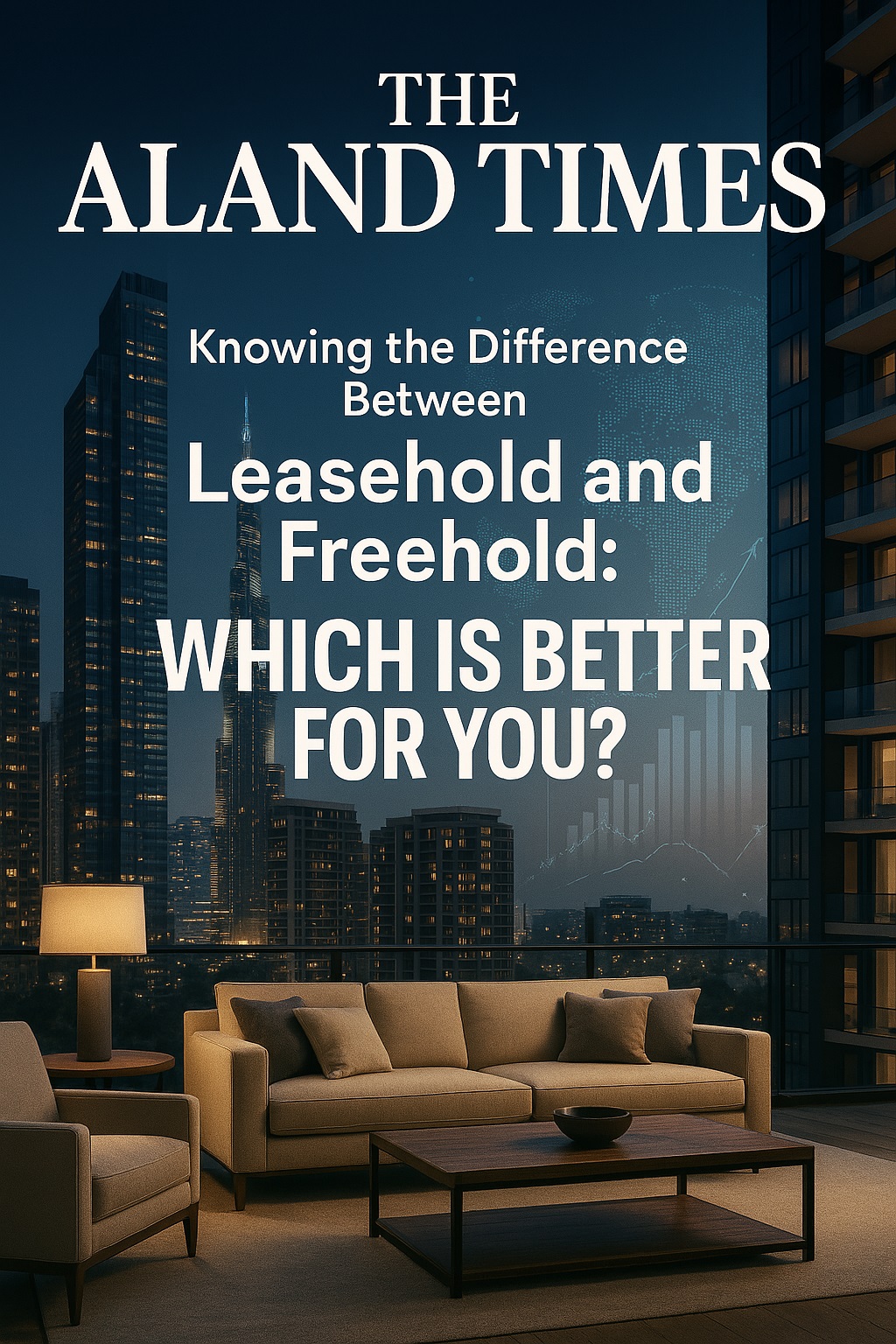Knowing the Difference Between Leasehold and Freehold: Which Is Better for You?
- Published Date: 3 Apr, 2025
-
5★ ★ ★ ★ ★(150)

Table of Contents
- What is Off-Plan Property in Dubai?
- Understanding Freehold Properties
- Understanding Leasehold Properties
- Key Differences Between Freehold and Leasehold Properties
- Pros and Cons of Freehold Ownership
- Pros and Cons of Leasehold Ownership
- Legal Framework Governing Property Ownership in Dubai
- Financing Options for Property Purchase
- Customization and Renovation Rights
- Maintenance and Service Charges
- Impact on Property Value Over Time
- Residency and Visa Implications
- Popular Areas for Freehold Properties
- Popular Areas for Leasehold Properties
- Risks Associated with Off-Plan Properties
- Benefits of Investing in Off-Plan Properties
- Steps to Purchasing Off-Plan Property
- Comparing Off-Plan and Ready Properties
- Factors to Consider When Choosing Between Freehold and Leasehold
- Case Studies: Successful Investments in Dubai
- Common Misconceptions About Property Ownership in Dubai
- Future Trends in Dubai's Real Estate Market
- Expert Tips for First-Time Investors
- Conclusion: Making the Right Choice for Your Investment Goals
- FAQs on Property Investment in Dubai
What is Off-Plan Property in Dubai?
An off-plan property refers to real estate that is purchased before construction is completed, often during the planning or early construction phases. Buyers rely on architectural plans, 3D models, and the developer's reputation when making such investments. One of the main attractions of off-plan properties is the potential for capital appreciation, as they are typically offered at prices lower than completed units.
Understanding Freehold Properties
Freehold ownership grants the buyer complete and indefinite ownership of both the property and the land it occupies. Owners have the freedom to sell, lease, or occupy the property at their discretion. In Dubai, freehold properties are primarily available in designated areas, offering expatriates the opportunity to own property outright.
Understanding Leasehold Properties
Leasehold ownership allows the buyer to hold the property for a predetermined period, typically up to 99 years. While the leaseholder has rights to the property during this term, the land itself remains under the ownership of the freeholder. Upon expiration of the lease, ownership reverts to the freeholder unless an extension is negotiated.
Key Differences Between Freehold and Leasehold Properties
Ownership Duration: Freehold offers perpetual ownership, whereas leasehold is time-bound.
Control and Flexibility: Freehold owners have greater autonomy over their property, including modifications and transfers. Leasehold owners may face restrictions imposed by the freeholder.
Maintenance Responsibilities: Freehold owners are typically responsible for all maintenance, while leasehold agreements may delineate maintenance obligations between the leaseholder and freeholder.
Property Value Over Time: Freehold properties may appreciate more steadily, while leasehold properties might depreciate as the lease term diminishes.
Pros and Cons of Freehold Ownership
Pros:
Full Ownership: Complete control over the property and land.
Potential for Appreciation: Higher likelihood of property value increase over time.
No Lease Expiry Concerns: Ownership is not limited by time.
Cons:
Higher Initial Investment: Freehold properties may require a larger upfront payment.
Maintenance Responsibilities: Owners bear all costs and efforts related to upkeep.
Pros and Cons of Leasehold Ownership
Pros:
Lower Entry Cost: Generally more affordable than freehold properties.
Less Maintenance Responsibility: Some maintenance duties may fall to the freeholder.
Cons:
Limited Ownership Period: Ownership is confined to the lease term.
Potential Restrictions: Modifications and uses may be subject to freeholder approval.
Depreciating Value: Property value may decline as lease expiration approaches.
Legal Framework Governing Property Ownership in Dubai
Dubai's property ownership is regulated by laws that distinguish between freehold and leasehold areas. Non-UAE nationals can own freehold properties in designated zones, while leasehold properties are available in
Dubai's property ownership laws distinguish between freehold and leasehold areas, each with specific regulations and implications for potential buyers.
Freehold Areas: Non-UAE nationals are permitted to acquire freehold ownership rights in designated areas of Dubai. This means they can own the property and the land on which it stands without time restrictions. Some of the prominent freehold areas include:
Dubai Marina: A waterfront community known for its skyscrapers and vibrant lifestyle.
Downtown Dubai: Home to landmarks like the Burj Khalifa and The Dubai Mall.
Palm Jumeirah: An iconic man-made island offering luxury residences.
Jumeirah Lakes Towers (JLT): A mixed-use development with residential and commercial towers.
Emirates Hills: A prestigious gated community with luxury villas.
These areas have been designated by the government to encourage foreign investment in the real estate sector.
Leasehold Areas: In contrast, leasehold properties are typically located in areas where foreign ownership is restricted. In these zones, non-UAE nationals can lease properties for a period of up to 99 years but do not own the land. Examples of leasehold areas include:Deira: One of the oldest parts of Dubai, known for its traditional markets.
Al Karama: A residential district with a mix of low-rise buildings and commercial establishments.
Dubai Silicon Oasis: A technology park with residential and commercial properties.
International City: A themed development housing diverse nationalities.
Dubai Sports City: A sports-themed community with residential and athletic facilities.
Ownership in these areas is generally limited to UAE and GCC nationals. Understanding the distinction between freehold and leasehold areas is crucial for potential investors. While freehold properties offer full ownership rights and are concentrated in specific zones, leasehold properties provide long-term leasing options without land ownership. Prospective buyers should consider these factors, along with their long-term objectives and the specific regulations governing each area, to make informed investment decisions in Dubai's real estate market. you can also find us on google.

